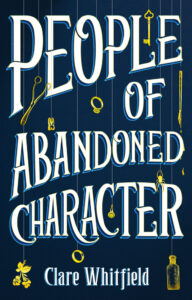As a child I remember being told not to judge a book by its cover. How we should always judge a person by their deeds and not be seduced by words, and something about a person showing their true colors. I’m sure there are other phrases but they’ve all blurred into an indistinguishable blob of the advice I absorbed as a child without question. Then I grew up and realised adults don’t follow their own advice, ever.
All that good logical instruction slips away until it seems only applicable to children and it’s widely accepted that some adults especially seem to be able to get away with behaving badly. At the same time, we expect bad people to come with devil horns and a handy label. It’s still a surprise when we find out murderers can be charming and admired in the community. Cruel manipulators might always open doors for those behind them and sadists may love to wear baby pink and make a mean cupcake. At what point do we forget to live by our own lectures? Letting old tropes control our judgement, often only recognising the rag flags for what they are when it’s too late—when we are forced to learn—then we act shocked. How we crave simplifying each other into two dimensional labelled boxes yet wail endlessly how we are misunderstood and need nuanced understanding. In my debut novel, People of Abandoned Character, everyone is potentially masquerading as something or someone else, so here are some of the more misleading characters that inspired me along the way.
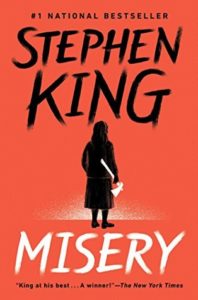
Annie Wilkes, Misery by Stephen King
Played brilliantly by Kathy Bates in the movie that followed three years after the 1987 novel, Annie couldn’t be a nicer person. On first impressions we are thankful novelist Paul is miraculously rescued from a car accident by a warm and homely ex-nurse. What could be safer? Annie is a natural caregiver—she can’t even bear profanity, but it doesn’t take long for her frightening temper to reveal itself. Armed with more twee phrases than Ned Flanders, Annie has a seriously dark streak. While Paul is trapped in her care Annie suffers from periodic episodes of dark moods and despair and freaks out over the most minor and unpredictable things, acting out violently. The woman is a nightmare and is the reason I am wary of people who profess to be fans of romance novels.

Rachel Watson, The Girl on The Train by Paula Hawkins
A classic unreliable narrator story, although told through three first person voices. Rachel is an alcoholic and particularly sad and tragic. Her Behavior is at times hard to watch. She still commutes to work every day despite the fact she lost her job. During the train ride she pathetically spies on her ex and his new family, constructing fantasies about another couple who live nearby. But it’s her lying and inability to maintain any dignity and control her impulses when she drinks, or so we think, that makes us doubt her so much, question her character and write her off as someone whose problems are entirely of their own making.

Nurse Ratched, One Flew over the Cuckoo’s Nest by Ken Kesey
This is a novel whose themes kind of flew over my head when I first encountered it as a teenager. My initial reaction was that Randle McMurphy, a convict trying to get an easier ride at a psychiatric hospital rather than jail, was obnoxious and a disruptive rule breaker—all he did was push the boundaries already established with the patients. The story is told through the voice of “Chief” Bromden, a native American ex-football star with schizophrenia, who spends most of his time pretending to be deaf and mute and this allows him to earwig as people let their guard down in his presence. I couldn’t see the insidious control Nurse Ratched exerts over the hospital until revisiting with adult eyes. But it’s still confusing with a modern gaze—is Randall’s resistance to Nurse Ratched because he refuses to be controlled by a woman? Now I think I’m more confused.
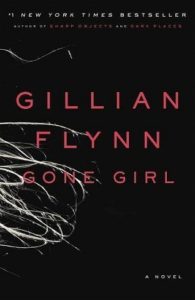
Amy & Nick Dunne, Gone Girl by Gillian Flynn
The tale of a destructive marriage that spirals out of control until there’s a murder inquiry. It’s one of my favorite books, if only for the “cool girl” prose. Amy supports Nick’s mother during cancer treatment, funds his mid-life crisis and moves to his hometown to keep him happy but it’s not enough, and he has an affair with a much younger woman. Nick’s a childish brat, but he doesn’t deserve the punishment his raging wife constructs for him, executed with military precision. I have had many debates with my husband about who was the worst person once the movie came out. I think the film was much more sympathetic to Nick, and the book does a better job of making the reader think they actually suit each other. Amy is my hero—this scares my husband and this pleases me.
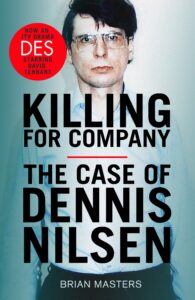
Dennis Nilsen, Killing for Company by Brian Masters
A true crime book that seriously disturbed me when I first read it. In 1983, Dennis Nilsen was arrested at his London flat after human remains had been found when a plumber was investigating the building’s blocked drains. A few days later, he confessed to fifteen murders of homosexual men over a period of four years. Brian Masters wrote this book with Nilsen’s full cooperation. There’s no question that he was guilty of the crimes but the horrifying part is that often Dennis comes across as likeable. He was popular among colleagues where he worked, could be very chatty, he had visitors, he worried about his dog. When confronted with the horrific crimes it has a disturbing effect on the reader—I felt conflicted and nauseous.

Adele Ferguson, Behind her Eyes by Sarah Pinborough
Louise is a divorced single mom and meets David in a bar, they kiss, and the very next day she goes to work and it turns out last night’s David is her new boss, oh and by the way he’s married… more than a little awkward. Louise then meets his wife, the very needy and seemingly unstable Adele. Despite her reluctance Louise finds herself feeling sorry for her. Adele and Louise end up becoming friends, while Louse embarks on an affair with David. Let’s just say it gets even more complicated. Adele is a skilled manipulator, and she’s done this before.
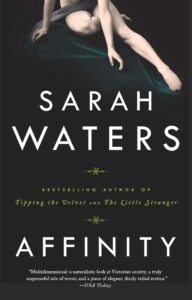
Selina Dawes, Affinity by Sarah Waters
Upper class Margaret Prior has been undertaking charitable visits with incarcerated women in London’s worst jail. But while she’s there she becomes enthralled by the seemingly fragile and ethereal Selina Dawes, interred for a death at a séance she was conducting. The lovely but lonely Margaret is seduced by the enigmatic but vulnerable Selina’s charms. Like all doomed love affairs, heartbreak must follow.
***


